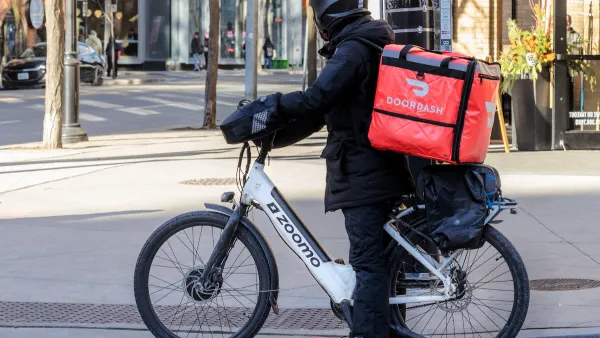Go ahead, define sustainability. Everyone knows countless, tangled and unconvincing definitions for this word which is quickly losing steam. The problem is that we’re not sure about how sustainability relates to us except in planetary ways. We’re bombarded with many concepts that if we reduce this by 20% then we’ll get that in 30 years which helps the earth survive. All’s well, except we’re almost numb because we won’t feel the aggregate effects for quite some time. Obviously, we’re an impatient lot.
Go ahead, define sustainability. Everyone knows countless, tangled and unconvincing definitions for this word which is quickly losing steam. The problem is that we're not sure about how sustainability relates to us except in planetary ways. We're bombarded with many concepts that if we reduce this by 20% then we'll get that in 30 years which helps the earth survive. All's well, except we're almost numb because we won't feel the aggregate effects for quite some time. Obviously, we're an impatient lot.
When it shakes out, sustainability is more about reducing the inefficiencies and lowering the cost of daily life in order to "manufacture time" which allows people to enjoy themselves better than they can today. But in those terms, this seems like an immediate goal we can relate too. It crosses all societal boundaries and puts an emphasis on helping ourselves right away, which in turn will allow us to help others. Remember the flight attendant saying, "Put the mask over your nose first, and then help others." Same idea.
Most people strive to lead very simple lives. Most importantly, they care about energy costs, health care, children's education and commute time. Everyday pragmatism. So sustainability is more about finding meaningful solutions to everyday life. Many good strategies based on Complexity Theory can show proven results, if we decide to learn and try. Yes, home energy savings can help fund individual health savings accounts. They're related. This will eventually be done by either evolution or revolution.
Realistically, most people are only vaguely interested in how sustainability works. We're willing to pitch in because it's usually the right thing to do and we may even be willing to pay more if we're assured dependability and fairness.
So if the result is a few extra hours at home with the family to do as we please - have dinner together, play soccer with the kids, build a new porch, hold a garage sale, lead a Boy Scout troop, learn ballroom dancing, read, paint, travel, exercise, volunteer for anything, then we have achieved the goal of why sustainability matters. Even more importantly, how we've created the most cherished byproduct - Time.

Maui's Vacation Rental Debate Turns Ugly
Verbal attacks, misinformation campaigns and fistfights plague a high-stakes debate to convert thousands of vacation rentals into long-term housing.

Planetizen Federal Action Tracker
A weekly monitor of how Trump’s orders and actions are impacting planners and planning in America.

In Urban Planning, AI Prompting Could be the New Design Thinking
Creativity has long been key to great urban design. What if we see AI as our new creative partner?

Massachusetts Budget Helps Close MBTA Budget Gap
The budget signed by Gov. Maura Healey includes $470 million in MBTA funding for the next fiscal year.

Milwaukee Launches Vision Zero Plan
Seven years after the city signed its Complete Streets Policy, the city is doubling down on its efforts to eliminate traffic deaths.

Portland Raises Parking Fees to Pay for Street Maintenance
The city is struggling to bridge a massive budget gap at the Bureau of Transportation, which largely depleted its reserves during the Civd-19 pandemic.
Urban Design for Planners 1: Software Tools
This six-course series explores essential urban design concepts using open source software and equips planners with the tools they need to participate fully in the urban design process.
Planning for Universal Design
Learn the tools for implementing Universal Design in planning regulations.
Gallatin County Department of Planning & Community Development
Heyer Gruel & Associates PA
JM Goldson LLC
City of Camden Redevelopment Agency
City of Astoria
Transportation Research & Education Center (TREC) at Portland State University
Jefferson Parish Government
Camden Redevelopment Agency
City of Claremont



























